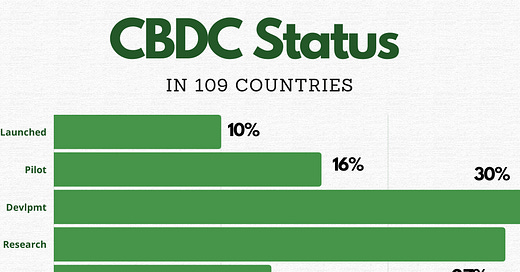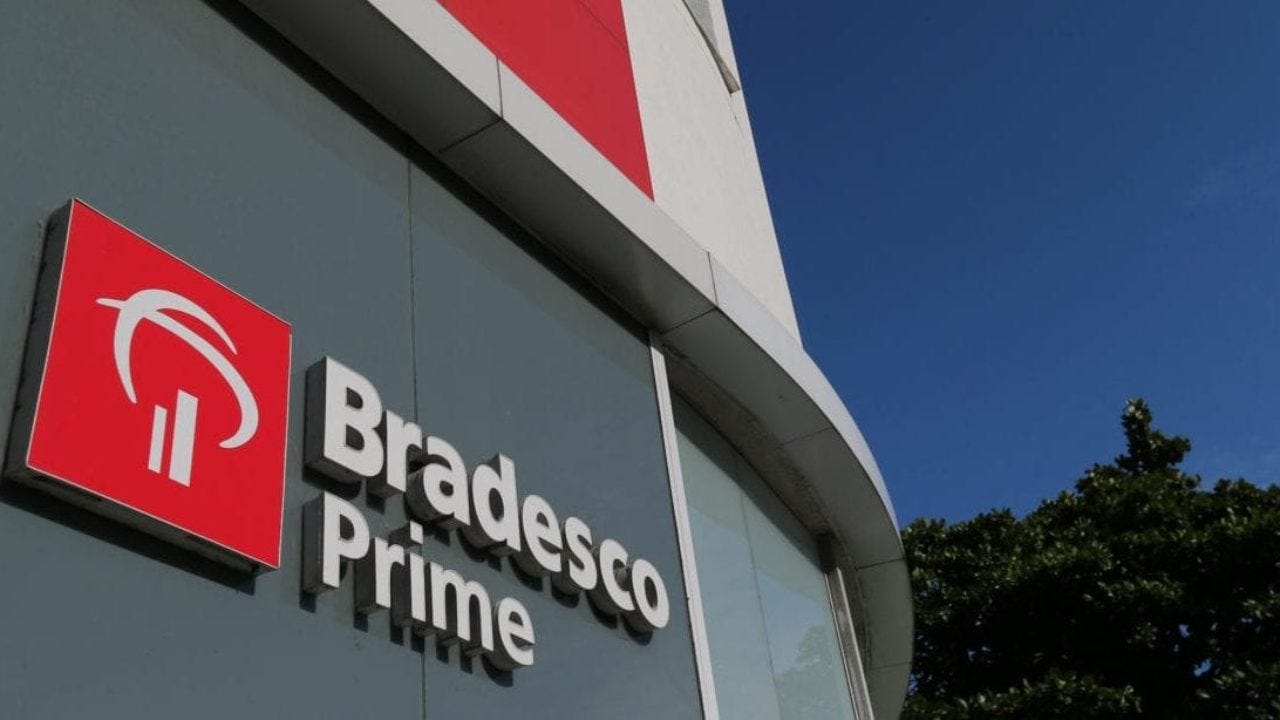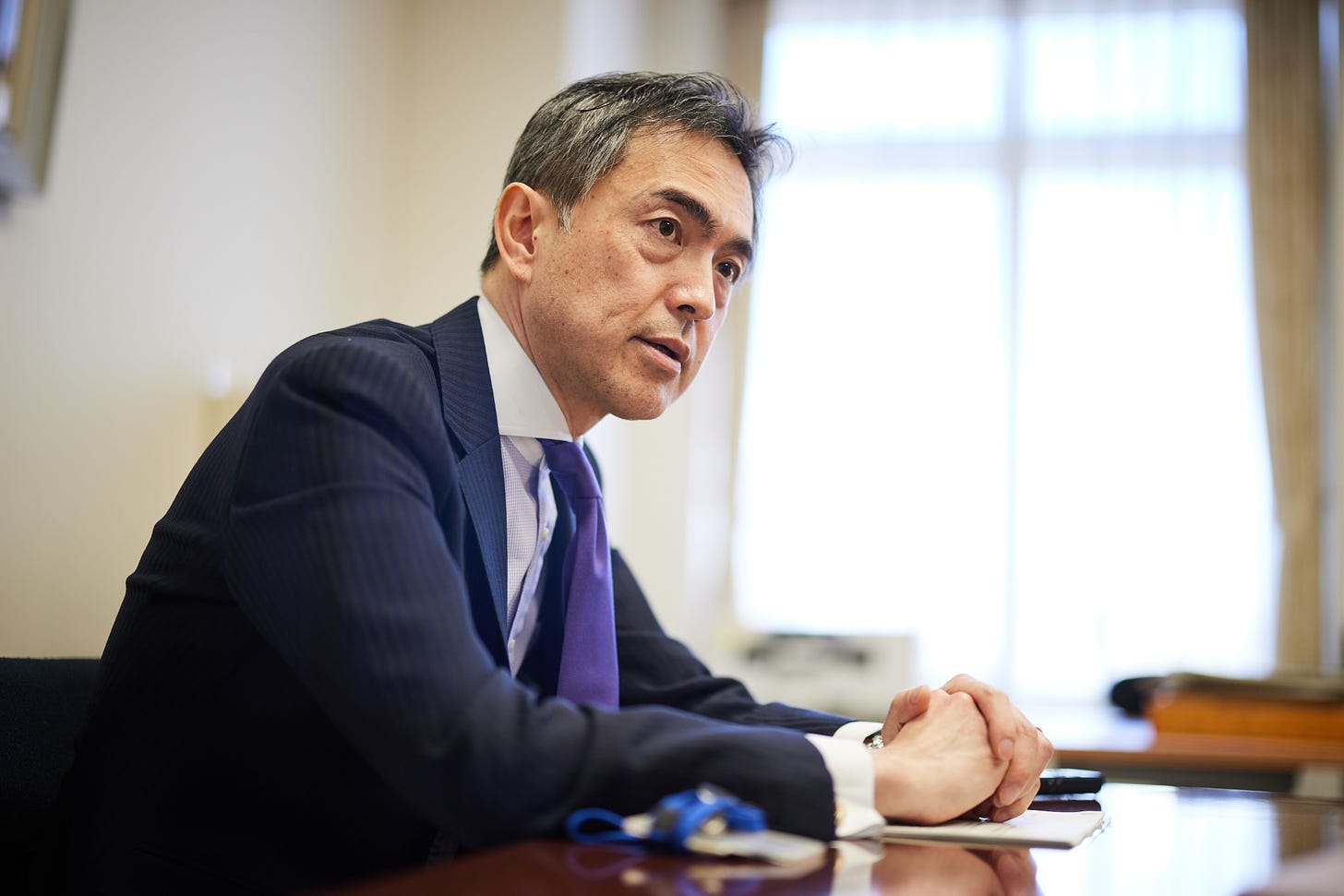
Can Stablecoins secured by Gold be a game-changer?
Hello,
In today’s dispatch we have:
Iran and Russia to issue a new stablecoin backed by gold
Brazil's largest bank launches tokenized credit notes
Japan pushes global counterparts to regulate cryptocurrencies like banks
Iran and Russia, the dynamic duo of the cryptocurrency world, have announced their plans to launch a new stablecoin backed by gold.

What's it all about?
-The new stablecoin will be pegged to the value of gold, providing stability and security that many other stablecoins lack.
- The aim is to create a "token of the Persian Gulf region" that would be used as a payment method in international trade.
- Aspires to replace fiat currencies such as the US dollar, Russian ruble, and Iranian rial in cross-border transactions
- It will first function in an Astrakhan special economic zone, where Russia has begun to accept Iranian cargo shipments.
But this stablecoin isn't just about providing a safe haven for investors or traders. It's also a power move by Iran and Russia to assert their dominance in the global financial landscape. Launching a stablecoin backed by gold sends a clear message that they're not going to be pushed around by the likes of the US and other Western powers.
Iran and Russia are among the nations where residents are prohibited from utilising cryptocurrencies such as Bitcoin. However, Iran's trade industry legalised cryptocurrency usage for imports last year as they started facing economic sanctions and currency fluctuations.
But why gold, you may ask? Well, for starters:
- Gold is a tried and true store of value and has been used as currency for thousands of years.
- Gold is considered less volatile than some other assets (cough, Bitcoin, cough)
- With tensions running high between these two nations and the rest of the world, a stablecoin backed by gold gives them a bit of financial independence.
But sources say that the project will take off only when Russia starts regulating their digital asset market. Russian lower house of parliament has been sending out invitations to regulate crypto transactions for ages, but so far, all we've seen is delay after delay.
Brazil's largest bank launches tokenized credit notes
Looks like the world of finance is getting a little bit more interesting, folks. Brazil's second-largest private bank, Banco Bradesco, has just launched its first tokenized credit note. That's right, you can now trade credit like it's a hot new crypto.
The operation, carried out in collaboration with Bolsa OTC, tokenized about $2 million in bank credit notes supplied by Bradesco.
But why tokenize a credit note? Because it is more efficient. Tokenization allows for faster and more secure transactions, as well as easier tracking and management of credit note. Plus, it's a step towards a more digital and decentralized financial system.
By launching a tokenized credit note, Banco Bradesco is hopping on the blockchain bandwagon and proving that they're not afraid to take risks and try new things. It also announced the formation of its tokenization unit, which will focus on providing tokenization services to customers, allowing them to tokenize and sell assets via a platform constructed and owned by the bank.
So, while some may see this move as just another sign of the ongoing digitalization of finance, it is a step forward for innovation and decentralization.
Japan pushes global counterparts to regulate cryptocurrencies like banks
The Japanese government is reportedly planning to introduce stricter regulations on using cryptocurrencies to combat money laundering and other financial crimes.
The move comes amid growing concerns about the potential misuse of digital currencies and follows similar efforts by other countries worldwide to crack down on illegal activities in the crypto space.
According to sources familiar with the matter, the proposed regulations will focus on increasing transparency and oversight of crypto transactions. They will require exchanges and other platforms to implement stricter know-your-customer (KYC) and anti-money laundering (AML) measures.
The recent bankruptcy and fraud charges against FTX and its founder, Bankman-Fried, have brought attention to the gaps and differences in digital-asset regulation across the globe.
Japan, however, has implemented rules that have protected its investors and allowed them to withdraw funds from the local subsidiary of FTX next month.
Japan's regulator is now urging other countries, including the United States and Europe, to implement similar supervision for cryptocurrency exchanges as those faced by traditional banks and brokerages.















